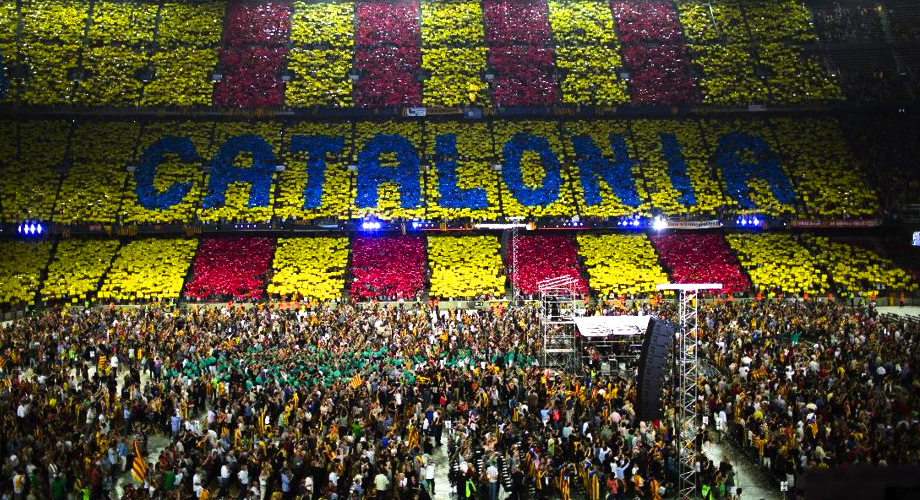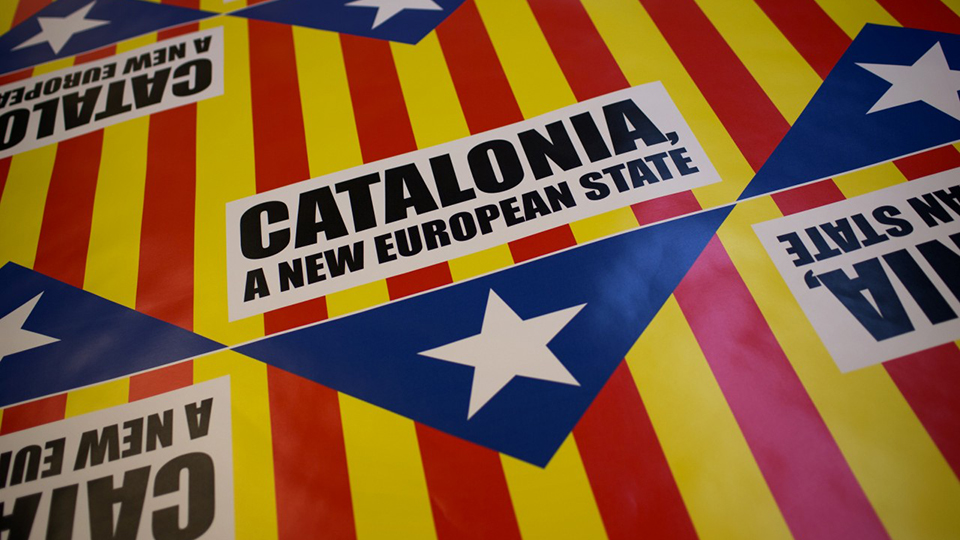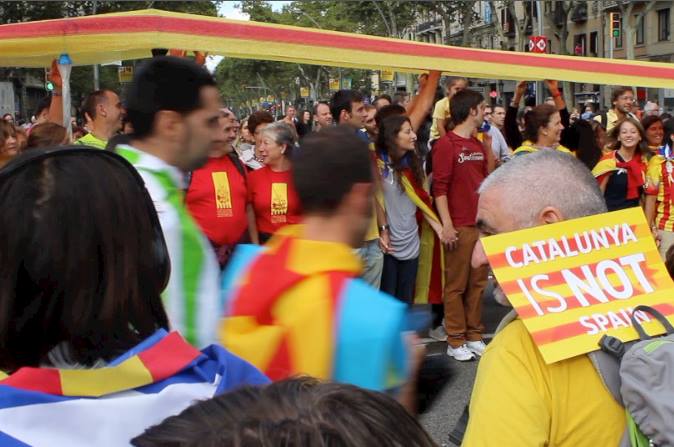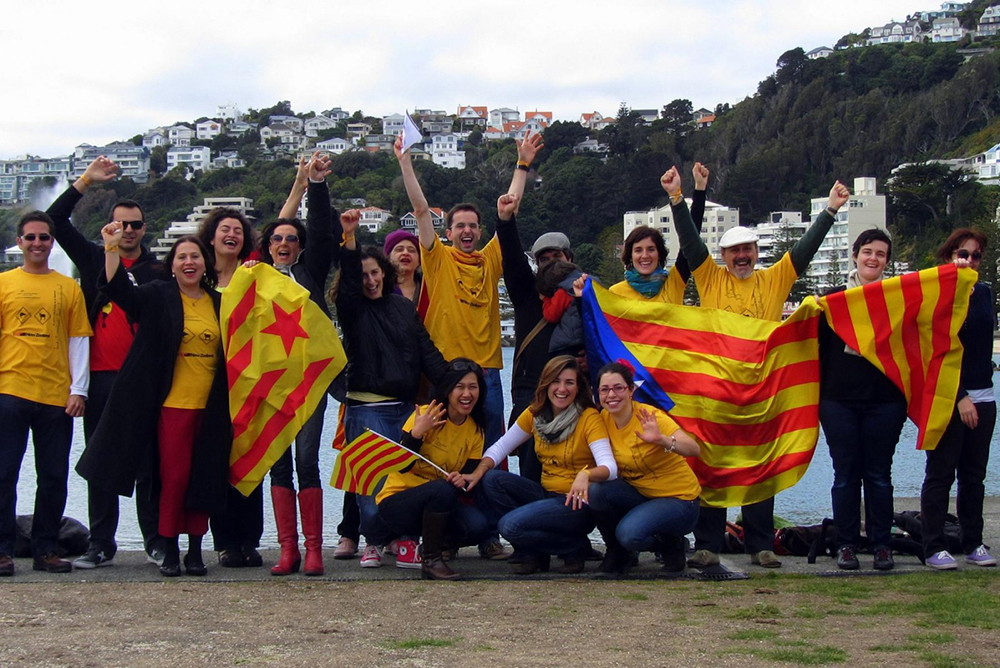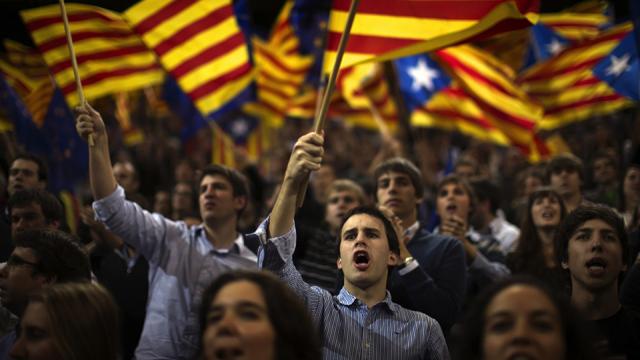
1.6 million Catalans took part last week in a 400-kilometer human chain amid demonstrations calling for independence from Spain, which covered the country's northeastern region from north to south.
Catalonia has been steadily raising its voice in recent years to claim its formal identity as a nation. But the jobs and housing crises, governmental corruption and politicians' mismanagement of a host of economic issues has inspired many more Catalans to join the cause.
“In-Inde-Independencia” was the shout echoing across Catalonia on Wednesday, September 11, the 299th anniversary of the 1714 Siege of Barcelona after which Catalonia was absorbed by Spain. The joy was palpable in the streets last week, as people sang “Visca la terra lliure” — Hurray for a free land.
“Catalans are tired of the Spanish stagnation. We want to have the possibility to vote for our self-determination,” said Guillem Montoro, who was supporting the human chain in Plaça Catalunya, the central square of Barcelona.
The Spanish central government has forbid a referendum, alleging that it is against the Spanish Constitution. But Catalans have resisted that order, moving by peaceful means to seize on the momentum caused by the economic crisis to turn the tide toward independence. More than one-fifth of the region — 1.6 million out of a population of 7.5 million — came out last week in support of the referendum.
They are aiming to realize it next year, on the 300th anniversary of the Bourbon Troops' occupation, although Catalonia's President Artur Mas has expressed the desire to wait until 2016. “It is a very special day for us, because we have the dream to create a new state in Europe," said Montse Trullàs, who works as a nurse in Barcelona.
"We feel it closer every day,” she said.
The region's yellow-and-red striped independence flag was omnipresent last week, from bracelets to banners to the t-shirts worn by participants in the human chain. “We also want our independence day, Obama,” read one banner.
The movement for Catalan independence has grown notably since the start of the crisis in Spain, which has seen unemployment rise to 27%, huge cutbacks in health and educational services, an increase in taxes, people thrown out of their homes due to foreclosures, and austerity measures due to the country's tremendous debt it owes the European Central Bank.
“We are furious with Spain. They take away our money and we are the region that has suffered most [of the] cutbacks from Madrid. It is not fair at all,” complained Anna Coll, a 50-year-old woman who runs a clothing shop in a small town close to Barcelona.
Catalonia, fueled by the industrial region around Barcelona, remains Spain’s wealthiest department and occupies one-fifth of the national economy. Pro-independence supporters feel that Catalonia is paying a disproportionate level of taxes to Madrid in relation to the funding and state support it receives in return.
According to ARA, one of the most pro-independent newspapers, the last published fiscal deficit in 2009 showed that the region only collected 57 cents on every Euro it paid to the central government.
Most of the Catalans who came to the demonstration said they would be wealthier and have a better quality of life if Catalonia were independent. “It is not anymore about how we feel as a nation," said demonstrator Joan Dalmau, "it is also because we would have more economic power having our own state.”
The Spanish government, for its part, views demonstrations like these as a threat to national unity and advised several weeks ago that it would block any chance of a referendum for Catalan sovereignty in the courts.
3 WAYS TO SHOW YOUR SUPPORT
- Log in to post comments

